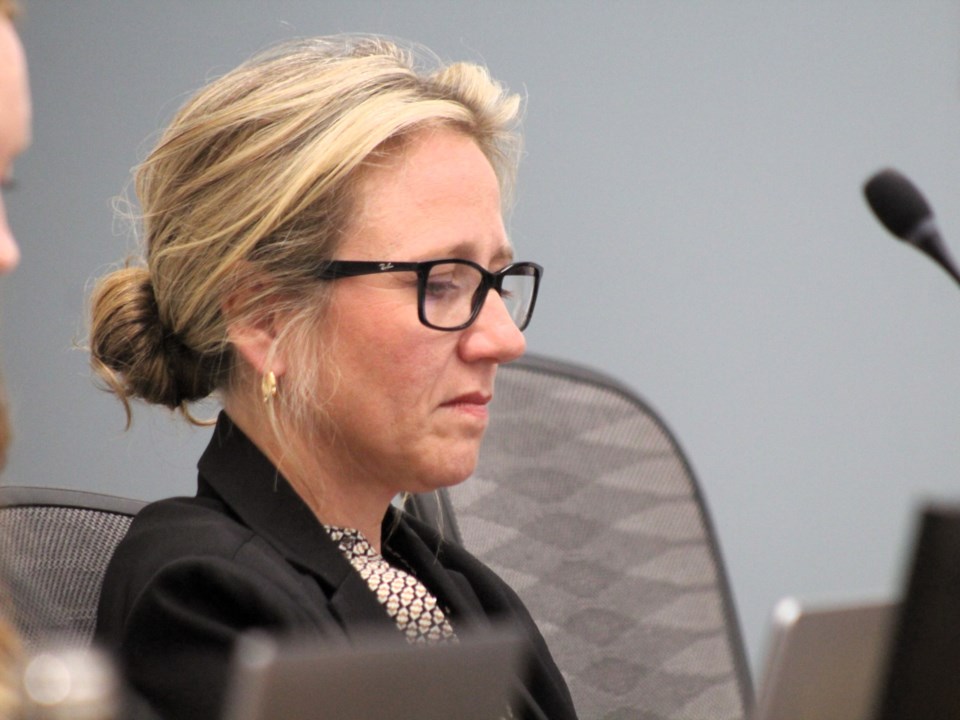Development charges in Collingwood are set to double due to the rising costs of water infrastructure, according to town staff.
During their regular meeting on July 8, councillors approved increases to development charge rates in Collingwood, despite vocal opposition to the changes from the development community.
Kory Chisholm of MHBC Planning submitted comments in writing on the changes on behalf of the Georgian Triangle Development Institute.
“With the town’s development charges nearly doubling overnight there will be a myriad of repercussions from this sudden increase to per-unit housing costs and the viability of housing projects at various stages of the planning approval process,” he wrote.
Chisholm also spoke at the meeting on behalf of the owners of the Eden Oak development at 452 Raglan St.
“We continue to have concerns with the proposed increases and the overall impact on housing prices and affordability in this town,” he said.
Development charges are one-time fees collected from developers when a building permit is pulled to help pay for the cost of infrastructure required to provide municipal services to new development, such as roads, transit, water and sewer infrastructure, community centres and fire and police facilities.
Under the Development Charges Act, the current life of a development charge bylaw is five years. Collingwood’s current development charge bylaw is set to expire Sept. 1. Moving forward under the act, future development charge bylaws will expire 10 years after they come into effect.
Under the current rates approved by council for 2024, urban rates for single/semi-detached dwellings are $42,855, other multiples are $32,328, two-plus bedroom apartments are $25,743 and bachelor/one-bedroom apartments are $14,919.
For non-residential units, urban rates per square metre are $196.38.
Changes were first presented to the public back in March, with Hemson Consulting noting at that time that development charges needed to increase significantly in Collingwood to keep up with the cost of services. Although the rates have been adjusted a few times since then due to changing provincial regulations, the new rates approved by councillors this week are as follows.
Urban rates for single/semi-detached dwellings would more than double to $79,984, other multiples would be $59,503, two-plus bedroom apartments would be $47,602 and bachelor/one-bedroom apartments would be $29,749.
For non-residential units, urban rates per square metre would increase to $330.82.
Further correspondence from the development community was also included as part of the staff report.
“It is important to note that the cost of development charges is ultimately passed on to home buyers,” wrote Victoria Mortelliti, senior manager of BILD (Building Industry and Land Development) Association in a letter.
“The town must recognize that these increases will not encourage the necessary development in Collingwood and could ultimately deter investment and growth in the area,” she wrote.
Town treasurer Monica Quinlan told councillors on Monday that the town is also concerned with how the development charge rates may impact affordability.
“However, with the significant rise in construction costs, these adjustments were necessary to make to continue to grow within the town,” she said, adding that homes and rentals that meet the provincial definition for affordable housing are exempt from development charges.
She also reiterated that much of the increases are due to the rising costs of the water treatment plant expansion (currently $270 million) and the future wastewater treatment plant expansion (currently estimated at $300 million).
Deputy Mayor Tim Fryer said that the town has little choice but to charge developers as the provincial and federal governments have provided no funding toward the expansions to date.
“I continue to believe the government should keep us whole on that, but if they’re not going to, then we need to continue to take the approach of collecting what we can,” he said, adding that the town has been undercollecting development charges for the past few years because the plant expansion cost estimates had originally come in much lower.
“I’m very supportive of going ahead,” said Fryer.
On Monday, council voted unanimously in favour of passing a bylaw to establish the new development charge rates in Collingwood.
